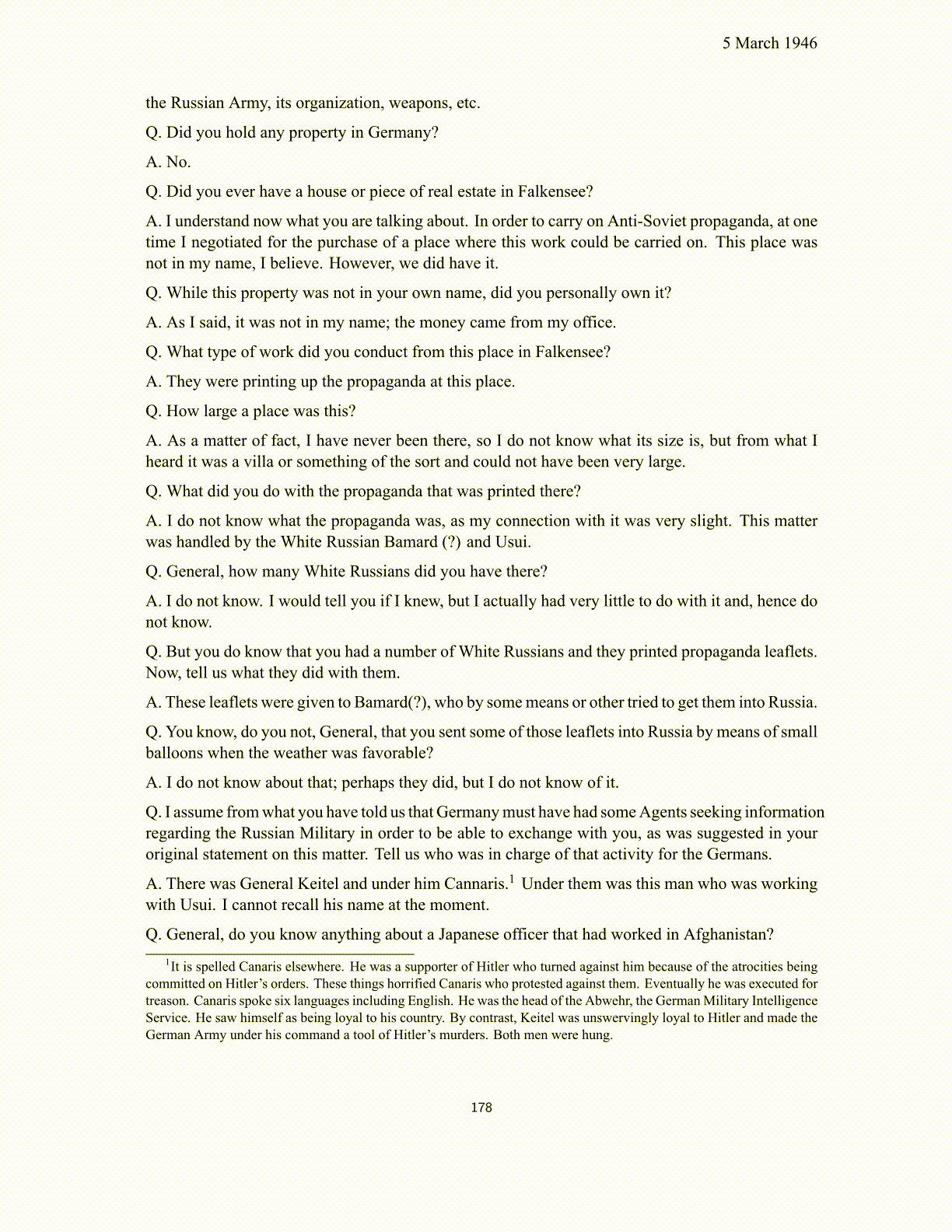
5 March 1946 the Russian Army, its organization, weapons, etc. Q. Did you hold any property in Germany? A. No. Q. Did you ever have a house or piece of real estate in Falkensee? A. I understand now what you are talking about. In order to carry on Anti-Soviet propaganda, at one time I negotiated for the purchase of a place where this work could be carried on. This place was not in my name, I believe. However, we did have it. Q. While this property was not in your own name, did you personally own it? A. As I said, it was not in my name; the money came from my office. Q. What type of work did you conduct from this place in Falkensee? A. They were printing up the propaganda at this place. Q. How large a place was this? A. As a matter of fact, I have never been there, so I do not know what its size is, but from what I heard it was a villa or something of the sort and could not have been very large. Q. What did you do with the propaganda that was printed there? A. I do not know what the propaganda was, as my connection with it was very slight. This matter was handled by the White Russian Bamard (?) and Usui. Q. General, how many White Russians did you have there? A. I do not know. I would tell you if I knew, but I actually had very little to do with it and, hence do not know. Q. But you do know that you had a number of White Russians and they printed propaganda leaflets. Now, tell us what they did with them. A. These leaflets were given to Bamard(?), who by some means or other tried to get them into Russia. Q. You know, do you not, General, that you sent some of those leaflets into Russia by means of small balloons when the weather was favorable? A. I do not know about that; perhaps they did, but I do not know of it. Q. I assume from what you have told us that Germany must have had some Agents seeking information regarding the Russian Military in order to be able to exchange with you, as was suggested in your original statement on this matter. Tell us who was in charge of that activity for the Germans. A. There was General Keitel and under him Cannaris. 1 Under them was this man who was working with Usui. I cannot recall his name at the moment. Q. General, do you know anything about a Japanese officer that had worked in Afghanistan? 1 It is spelled Canaris elsewhere. He was a supporter of Hitler who turned against him because of the atrocities being committed on Hitler’s orders. These things horrified Canaris who protested against them. Eventually he was executed for treason. Canaris spoke six languages including English. He was the head of the Abwehr, the German Military Intelligence Service. He saw himself as being loyal to his country. By contrast, Keitel was unswervingly loyal to Hitler and made the German Army under his command a tool of Hitler’s murders. Both men were hung. 178